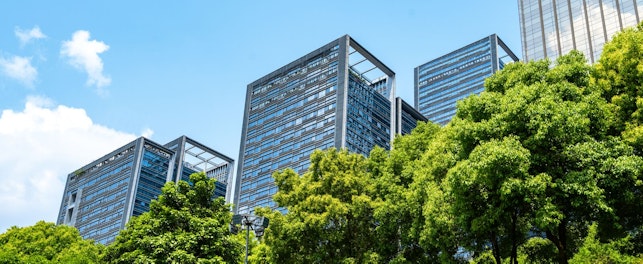THE EVOLVING THREAT
From robbers attacking merchants on trading roads to pirates seizing ships and bandits on horseback raiding stagecoaches – cargo theft has been around for centuries. Nowadays, trucks have replaced horse-drawn carriages while modern bandits are often international criminal enterprises.
PROTECT YOUR PRODUCTS, PREMISES & PEOPLE
Businesses that store and/or transport high-value goods, such as electronics, automotive, pharmaceuticals, clothing and state-of-the-art equipment, must implement robust measures to protect these items and the employees involved from various dangers, including theft and assault. This is where Transported Asset Protection Association (TAPA) security standards come in.
STATS DRIVING TAPA
Cargo theft is the biggest threat to global supply chains. A European Parliament study identified that cargo crime in Europe costs businesses over EUR 8.2 billion per annum.
Data reported to TAPA in 2020 showed that there were cargo thefts in 56 countries in the EMEA region and an average loss due to major cargo crimes of EUR 529,348.
Research involving TAPA and 12 leading industry associations found that businesses in Germany were suffering cargo losses and damages exceeding EUR 2.2 billion a year, from an estimated 26,000 attacks on trucks.
Some product types suffering losses in 2020:
- Food and drink – 536 thefts
- Tobacco – 403 thefts
- No load – 282 thefts
- Furniture/household appliances – 240 thefts
- Clothing and footwear – 213 thefts
- Cosmetics and hygiene – 150 thefts
- Tools/building materials – 97 thefts
- Metal – 87 thefts
- Computers/laptops – 68 thefts
- Pharmaceuticals – 67 thefts
Source: https://emea.tapa-global.org/news/over-172-million-of-products-stolen-from-supply-chains-in-emea-in-2020
STANDARDS TO SAFEGUARD SUPPLY CHAINS
TAPA uniquely unites global manufacturers, logistics providers, freight carriers, law enforcement agencies and other stakeholders to establish leading security standards for the supply chain. The aim is to minimize transport crime, cargo theft and the loss of goods.
OUR TAPA PORTFOLIO
As a world-leading testing, inspection and certification company with years of TAPA experience, we can offer:
- Facility Security Requirements (FSR) – certifiable globally
- Trucking Security Requirements (TSR) – certifiable globally
- Parking Security Requirements (PSR) – certifiable in EMEA only
- Guarding Security Requirements (GSR) – certifiable in APAC only
- FACILITY SECURITY REQUIREMENTS (FSR) IN DETAIL
FSR can help to protect theft-targeted products being stored or processed in facilities, such as warehouses and distribution centers, and applies to:
Any or all locations within the global supply chain
LSP-owned or operated facilities
Buyer-owned or operated facilities
The latest revision includes an FSR multisite certification option. Taking this approach will help to lower costs across your networks, as new certifications can list multiple sites under one parent certification.
Facilities are classified into one of three FSR levels – “A” being the highest security level while “C” is the lowest. LSPs must let the Authorized Auditor know which level they are seeking certification for before the certification audit starts. The LSP or buyer can request their own facility to be recertified if either party considers the classification level to have changed. Differences between levels also depend on the value of goods handled and stored by the client.
We can offer:
Single-site FSR certification – independently certified facility
The audit is conducted in the first year and is valid for three years before recertification is required.
Multisite certification – for facility operators of three or more sites
The audit is conducted in the first year, with annual surveillance audits in years two and three of central function +10% of the sites.
Supplier self-assessment
This must be submitted annually to the TAPA Certification Body that performed your original audit, within two weeks of the original certification anniversary date.
Supplier audits
When requested by the buyer.
TRUCKING SECURITY REQUIREMENTS (TSR) IN DETAIL
According to TAPA, trucks, trailers and last-mile delivery vans were by far the most popular targets for cargo thieves.
TSR represents minimum standards, specifically for transporting products via road within a supply chain. TSR is a tool aimed at users and providers of trucking services.
The standard provides a common benchmark of security measures for cargo transportation that can be used to form an agreement between a buyer (shipper) and LSP (carrier) of trucking.
TAPA’s Incident Information System (IIS) notes that over 85% of all cargo theft in North America involves trucks. Carriers and shippers must work together to secure this part of the transportation supply chain.
Trucks, trailers, vans and containers transported by road are classified into one of three security levels – “TSR 1” is the highest while “TSR 3” is the minimum acceptable security requirements.
An LSP’s trucks can be certified with a mix of all three or just one security level. For example, some buyers might require “TSR 1” for cargo while other buyers might find “TSR 2” acceptable for the same items. Meanwhile, a buyer might require “TSR 2” for some cargo and “TSR 3” for other goods.
The buyer must determine the TSR level and notify the LSP of this. If a buyer has not notified the LSP of the required TSR levels, all trucks operated for the movement of the buyer’s assets will default to “TSR 3”.
TAPA trucking categories
I. Small = carriers with 3 to 30 trucks. An Independent Audit Body (IAB) must inspect three trucks.
II. Medium = carriers with 31 to 100 trucks. An IAB must inspect the greater of 3 or 7% of the registered trucks, but a maximum of 6 must be inspected.
III. Large = carriers with over 100 trucks. An IAB must inspect 7% of all trucks, but a maximum of 10 must be inspected.
WHY TAPA CERTIFICATION?
A key link in your supply chain management, TAPA certification will demonstrate your commitment to improving security and meeting customer requirements.
Partnering with us to achieve certification can help you to:
- Prove to customers, competitors, suppliers, government agencies, employees and investors that you use industry-respected best practices
- Demonstrate to stakeholders that your business is secure and effective
- Ensure continual improvement and refine your activities, reducing losses and improving operational performance and savings
- Improve staff responsibility, commitment and motivation through regular assessment
- Increase overall performance, remove uncertainty and widen market opportunities
- Reduce loss ratios – as part of supply chain security programs, TAPA members could incur losses three times lower than the industry average
- Protect your supply chain – by enabling you to better understand threat levels, the products criminals target, when and where crimes occur and the modi operandi of thieves
- Benchmark and select suppliers – as TAPA is a valuable quality benchmark for manufacturers to use when selecting logistics partners
A KEY TAPA ASSESSOR
With years of experience as an approved TAPA assessor worldwide, we are perfectly positioned to support your various TAPA needs.
Our services audit elements across your business, including:
- Access control
- Employee checks
- Perimeter security
- Intruder security devices
- Monitoring systems
- High-value storage areas
- Transit delays
The process will also look for any areas of concern in your warehouses, distribution centers and consolidation facilities, as well as help you to specify minimum security measures for drivers.
KEY CLIENT SECTORS
Our current client sectors include:
- Freight forwarders
- Logistics parks
- Cargo transporters
- Air, sea and road transporters
- Cargo storage and warehouse facilities
- Clearing and forwarding services
- Supply chain management
- Air cargo handlers
- Manufacturers
- Retailers
OVERALL BENEFITS
Ultimately, certification can lead to:
- Greater processes and security
- More skillful personnel
- Better customer relationships
- A profitable and competitive advantage
Tap into TAPA with us. Learn more here .
About SGS
We are SGS – the world’s leading testing, inspection and certification company. We are recognized as the global benchmark for quality and integrity. Our 96,000 employees operate a network of 2,600 offices and laboratories, working together to enable a better, safer and more interconnected world.
SGS Building, Street no. N 203,
Jebel Ali Free Zone, P.O. Box: 18556,
Dubai, United Arab Emirates



